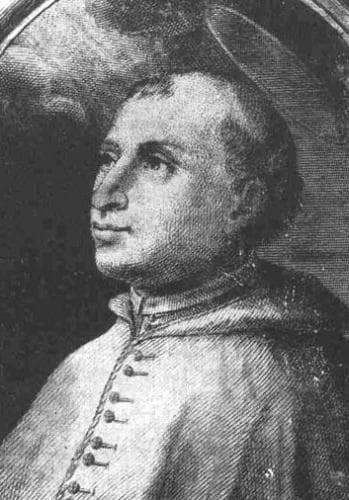
Blessed Louis Allemand
Blessed
Feast Day: September 16
Biography
Blessed Louis Allemand, also known as Louis Alamanus, Louis Alemanus, Louis Almannus, Louis Alamandus, Luigi Ludovico Allemandi, and Louis d'Aleman, was born into a noble French family. He dedicated his life to the service of the Catholic Church, making significant contributions as a canon lawyer, bishop, advisor, courtier, diplomat, and cardinal.
In 1418, Blessed Louis Allemand was appointed as the Bishop of Maguelonne, France. His deep knowledge of canon law and his exceptional diplomatic skills caught the attention of Pope Martin V, who enlisted him as an advisor and courtier. His effectiveness in this role led him to be appointed as the Archbishop of Arles in 1423.
Recognized for his abilities and dedication, Pope Martin V elevated Blessed Louis Allemand to the position of Cardinal-priest of Santa Cecilia in 1426. During his tenure, he played a vital role in the Council of Basle in 1436, where he advocated for the supremacy of general councils over the Pope. He actively campaigned for the decree of the Immaculate Conception of Our Lady, emphasizing her unique role in salvation.
Amidst his ecclesiastical duties, Blessed Louis Allemand also displayed a profound sense of charity and compassion. During his time at the Council of Basle, he worked tirelessly to aid and bring comfort to the victims of a devastating plague outbreak. His commitment to serving those in need exemplified his strong faith and personal piety.
However, in 1439, Blessed Louis Allemand made a fateful decision that led to unforeseen consequences. In a misguided attempt at Church reform, he played a primary role in the election of Anti-Pope Felix V. Pope Eugenius IV, seeing this as a threat to his authority, excommunicated both Allemand and Felix. Allemand consecrated Felix as bishop and even went so far as to crown him as pope, becoming a papal diplomat in the process.
Recognizing the gravity of the situation, Blessed Louis Allemand took it upon himself to end the schism he had unintentionally contributed to. Through his persuasion and diplomatic skills, he convinced Felix V to abdicate, leading to the election of Pope Nicholas V, who restored him to all his honors and offices. In 1449, Pope Nicholas V appointed Blessed Louis Allemand as the papal legate to Germany.
Throughout his life, Blessed Louis Allemand demonstrated an unwavering devotion to his dioceses and a steadfast commitment to the Catholic faith. Despite being embroiled in Vatican politics, he remained known for his strong personal piety and dedication to shepherding his flock. He lived a life marked by his love for the Church, his charitable actions, and his significant contributions as both a scholar and a diplomat.
Blessed Louis Allemand died on 16 September 1450, leaving behind a legacy of faith and service to the Catholic Church. His holiness and exemplary life were recognized by Pope Clement VII, who beatified him in 1527, confirming his cultus. Today, Blessed Louis Allemand is venerated as a model of faith, integrity, and dedication to the Church.